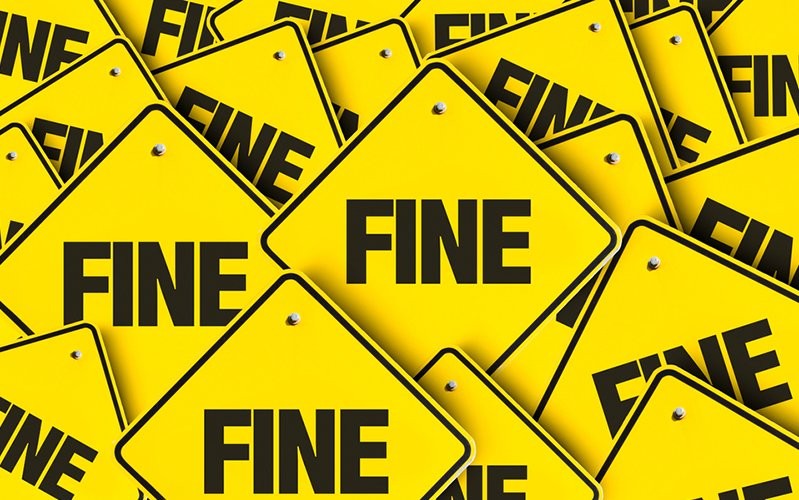BLOG
HSE criticised for using debt collection firms to carry out COVID-19 spot checks

Staff from private sector firms have been carrying out COVID-19 workplace spot checks on behalf of the Health and Safety Executive (HSE) – for the first time in its history.
In an attempt to bolster its workforce during the pandemic, in December, the HSE awarded contracts worth a total of £7 million to two debt-collection firms, Marston Holdings and CDER. The £7 million is the single largest spend from the £14 million emergency funding awarded to the HSE by the government last year for COVID-related enforcement.
The debt-collection firms’ operatives, known as “spot-check support officers”, carry letters saying they are authorised to carry out site inspections. On in-person visits, the operatives are only warranted to look at COVID security arrangements, such as masks, sanitation, two-metre segregation and bubble arrangements. They cannot take any enforcement action or issue a Fee for Intervention (FFI) notice – apparent breaches are referred to the HSE for further action.
As of 1 March 2021, an HSE spokesperson said “support officers” had carried out 44,000 spot checks at business premises across all industries and all areas of Great Britain. The HSE says the chosen firms have “extensive field forces” in England, Scotland and Wales and have worked for organisations “across the public sector”. The regulator stresses that the firms were selected on the basis of “their skills, infrastructure, staff and expertise”.
However, Prospect, a union representing HSE inspectors, has criticised the move. The union says the support officers are an inadequate replacement for personnel the HSE has lost over the last decade as a result of budget cuts. The use of private firms to carry out “COVID secure” assessments is also being questioned by employers and their legal advisers, with concerns that staff at the debt collection firms are not best qualified for the role. Indeed, the selected firms are normally contracted by local authorities, the courts, landlords, utility services and others, to enforce payment of assorted civil debts, from court judgments and parking fines to unpaid bills.
The HSE is also understood to have hired services provider Civica to run a telephone-based “spot check” service and COVID-19 hotline for reporting alleged guidance breaches.
Do you need support?
Speak to us for an honest, no obligation chat on:
0345 226 8393 Lines are open 9am – 5pm
Never mind the quantity – what’s the quality?
The number of spot inspections has notably increased this year. However, Nick Wilson, Director of Health & Safety Services at Ellis Whittam, believes the focus should be on the quality rather than quantity of the checks. Like many health and safety professionals, he fears that the outsourced hires don’t bring the same rigour to the checking role as HSE inspectors historically have.
As a former HSE inspector himself, Nick says: “You can’t reasonably expect debt collection firms to be a substitute for all the years of experience that qualified HSE inspectors have. While clients are undoubtedly seeing more HSE visits, many are commenting that they are not as rigorous as previous HSE inspections.”
This sentiment has been echoed by General secretary of Prospect, Mike Clancy. Labelling the private firm inspections, “low quality tick-box checks”, Mr Clancy says they further highlight the extent to which cuts have plagued the HSE since 2010. Indeed, the number of:
- HSE inspectors fell from 1,342 in April 2010 to 1,059 “inspectors and visiting inspectors” in 2019/2020.
- Court cases brought by the HSE fell from 711 in 2015/16 to just 355 in 2019/20.
Mr Clancy comments that the £14 million emergency funding isn’t going to be enough and that “A world-class safety regime cannot be delivered on the cheap”.
The HSE’s outsourcing comes at a time when it faces a financial shortfall due to the pandemic. The HSE’s annual report cautions that the crisis will have a “material” effect on its income – from FFI and providing services to other enforcement agencies such as DEFRA.
Meanwhile, the HSE has defended the move, claiming: “The introduction of proactive spot check calls and visits during the pandemic has allowed us to significantly scale up our proactive work to check, support and advise businesses on the implementation of the Public Health Safer Workplace guidance whilst supporting local authorities and the sectors they regulate, and responding rapidly to local outbreaks.”
The regulator adds: “A key benefit of this approach is that it allows our highly experienced inspectors to focus on more complex COVID-19 work, in addition to investigating reported concerns and investigating incidents”.
Ian Harvey, Head of Compliance, GFM Ltd
Not confident in your compliance?
No matter who’s conducting them, HSE spot checks can be daunting, and it’s best to plan ahead. At Ellis Whittam, we help employers to put in place all the necessary arrangements required under law, and will work with you to maintain compliance through ongoing support and award-winning software. That way, you can not only keep people safe but also dramatically improve your chances of a pain-free inspection.
Sign up for the latest news & insights
Resources
Latest News & Insights

HSE’s 2025 agenda | 7 highlights from its Annual General Meeting
BLOG Written on 8 August 2025 Now four years into its ambitious 10-year strategy, the HSE used this year’s Annual General Meeting (AGM) to clarify

Goodbye to gagging orders? | How amendments to the Employment Rights Bill could end NDA misuse
BLOG Written by Jane Hallas on 7 August 2025 Non-disclosure agreements (NDAs) – legal contracts used to prevent the sharing of certain information with others

5 ways summer can boost recruitment success
BLOG Written by Danielle Fargnoli-Read on 31 July 2025 Longer days, lighter moods, and a slower pace – summer in the UK offers a natural

Why probation still matters – even with day one rights delayed
BLOG Written by Richard Jay on 30 July 2025 Probationary periods remain a vital tool for employers to assess new hires, but upcoming changes to

Do ADHD and autism qualify as a disability? | Understanding the Equality Act 2010 and new case law
BLOG Written on 14 July 2025 When an employee discloses that they have ADHD or autism, many employers find themselves asking: Is this classed as

Privacy vs practicality | Are you entitled to know the reason for an employee’s sickness absence?
BLOG Written on 14 July 2025 When an employee calls in sick, it’s natural for employers to want to understand the situation. However, questions around

Education | What school leaders need to know about September 2025 pay changes
BLOG Written on 9 July 2025 As we near the end of the summer term, headteachers, school business managers and senior Trust staff, along with

Employment Rights Bill Implementation Roadmap | Your quick guide to what’s coming when
BLOG Written on 4 July 2025 The Employment Law Bill promises the biggest shake-up of UK employment law in decades. Having recently cleared the Committee

Fewer lives lost | Key takeaways from the HSE’s 2024/25 fatal injury statistics
BLOG Written on 3 July 2025 The Health and Safety Executive (HSE) has published its provisional fatal injury statistics for 2024/25, revealing a welcome decline








